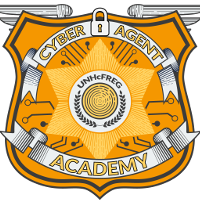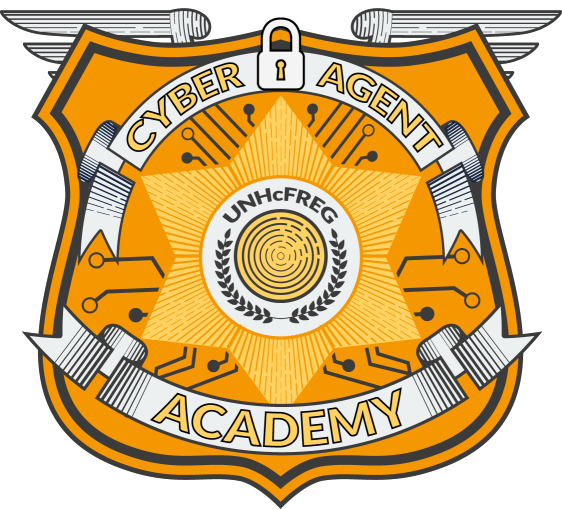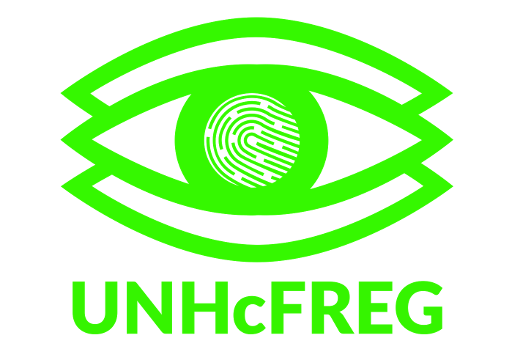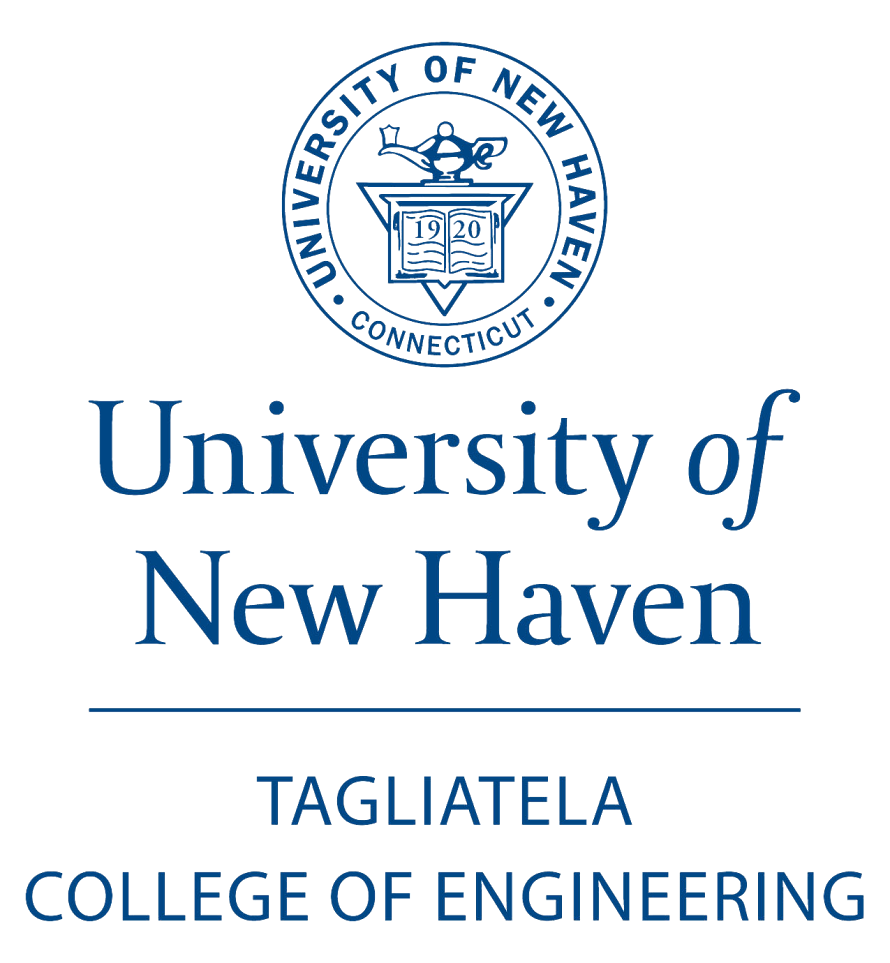Countdown Until Camp
Day(s)
:
Hour(s)
:
Minute(s)
:
Second(s)
million cybersecurity jobs in 2017
dollars is the average salary of a cybersecurity professional
amazing cyber agents weeklong academy!
dollars worldwide cybersecurity spending by 2020
About
The high school GenCyber Agent Academy (incoming 9th-12th grade) at the University of New Haven, hosted by the Tagliatela College of Engineering, is a unique, rigorous, student-centric summer camp with an enriching hands-on experiential learning environment. It is the first GenCyber camp in Connecticut and is open to 20 male and 20 female applicants. Cyber Agents accepted to this academy will enjoy a Cyber Career Catapult session where they will learn about educational and career opportunities in cybersecurity.
The camp offers the following courses (a) Python (b) Cyber Forensics (c) Hacking Concepts (d) IoT & Mobile and (e) Network Defense. Cyber Agents will also have unique experiences where they would tour the UNH Information Technology (IT) offices and server rooms, participate in a cyber Scavenger Hunt and compete in teams in a Cyber Challenge. The camp is a comprehensive one week, learner-centered, hands-on, intensive program designed not only to teach students about cybersecurity, but to also have a long term effect on their career goals and aspirations.
GenCyber Agent Academy Application Information
- Attending this camp is FREE of charge due to support by NSF and NSA
- There are only 40 spots open for applicants – our goal is to promote evenly distributed gender inclusion
- Student applicants must be 9th –
12th grade students on 2021-2022 school year – Graduating 12th graders are not eligible - All cyber agent applicants need to write a 500-word essay of why they think they should be accepted into the program and must be submitted in PDF format
- All cyber agent applicants should submit one letter of recommendation from a teacher. The teacher will receive an e-mail to fill out the recommendation based on the e-mail address supplied during
application process - This is a day camp and not a residential camp – this means students will have to be dropped off and picked up off of campus – Camp Schedule is posted at the bottom of the page
- Camp schedule will be posted in Schedule section
- Students interested in computing from underrepresented groups (minority and female students) are encouraged to apply
- No previous experience in computing is necessary, but it is highly encouraged – There will be different levels of training based on experience
- One week bus passes are available up to $20 value for student participants who need them
- Applications are due by: MAY 25th, 2021
Who
20 male and 20 female students in 9th – 12th grade with computing interests
When
July 26 to July 31, 2021, between the hours of TBD.
Why
In order to gain hands on experience in areas of cybersecurity and assist in selection of possible future careers based around STEM.
What
A FREE weeklong camp focused on Python, Cyber Forensics, Hacking Concepts, IoT/Mobile, and Network Defense. Box lunches will be provided.
Where
University of New Haven, 300 Boston Post Road, West Haven, CT 06516
How
Open to students with varying experiences! Check eligibility above. Click below to apply now!
Applications are Closed; Thank you to all of our applicants! Notifications will go out by June 15th.
Join us for our TryHackCIT Virtual Cybersecurity Bootcamp & CTF rescheduled to Fall 2021!
classes

Python
In the Python course, students will be instructed at the introductory level on programming. Students will work on projects such as: creating a cipher (e.g. a substitution cipher), writing a simple virus detection program that uses an existing hashing method to fingerprint and detect changes in a file, and implementing a basic password cracking program that tries all combinations of a four number PIN to break into a password protected system (brute force attack). We might pursue different projects if an emerging event (such as the recent Internet of Things denial of service attack) creates an opportunity to engage student interest.

Cyber Forensics
In the Cyber Forensics course, students will be engaged in learning how to acquire, authenticate and analyze digital evidence. The course will primarily focus on leveraging our in-house 3D game, using a hardware write-blocker and a tool to forensically image a storage medium, and then analyze the digital evidence found. Students will learn about hashing, file integrity, and the difference between an operating system and a filesystem. The class will be implemented using a hands-on approach. The class will also hone in on ethical concepts related to digital forensics.

Hacking Concepts
In the Hacking Concepts course, the basic idea of hacking will be explored. Over the sessions, we will focus on social engineering, phishing, encryption and hacking. More precisely, students will be involved in a social engineering and password experiments. Students will also use an encryption tool (e.g., TrueCrypt) to protect personal information. They will also learn how to differentiate between trusted / phishing websites. Additionally, students will learn by example how to hack into a website using Structure Query Language (SQL) injection. Lastly, we will discuss the concept of ethical hacking versus non-ethical hacking.

IoT & Mobile
The IoT & Mobile course will discuss the Internet of Things and their impact on security. In this class students will analyze the security of mobile application data using DatApp, an in-house mobile network analysis tool by former UNHcFREG student Roberto Mejia. Through this handson exercise they will also learn about the various countries their personal phones connect to. Students will also have the exciting opportunity of flying a DJI Drone III, as well as forensically analyzing the Drone. An example disassembled drone will be shared with the students, to show them the hardware used in its construction. The students will then be provided with an in-house Python script to run against the drone’s data in order to investigate the Drone’s whereabouts.

Network Defense
The Network Defense course will inform students on how to analyze network traffic as well as devices with tools like WireShark to experience the difference between encrypted and unencrypted traffic. Students will also employ network and port scanning tools like Nmap to examine open and closed ports and what we can learn from systems. Lastly, students will be taught how to configure a router in order to obtain a secure WiFi connection and examine how easily a weak encryption can be hacked.

Other Unique Experiences
- Cyber Agent Drone Investigation
- Cyber Agent Scavenger Hunt
- Cyber Agent Drone Investigation
- Cyber Agent Capture the Flag Challenge
- Prominent Speakers in Cybersecurity will present remotely
Instructors & Speakers

Dr. Ibrahim Baggili
Program Director
He is the Elder Endowed Family Chair of Computer Science, and Assistant Dean of TCoE. He is also the founder and co-director of UNHcFREG. He has played a major role in the development of four cybersecurity related degree programs both nationally and internationally. He has published numerous articles, chaired conferences in the area of cybersecurity both nationally and internationally, and has won best paper awards for his work.

Vahid Behzaden

Liberty Page
Lead Instructor






